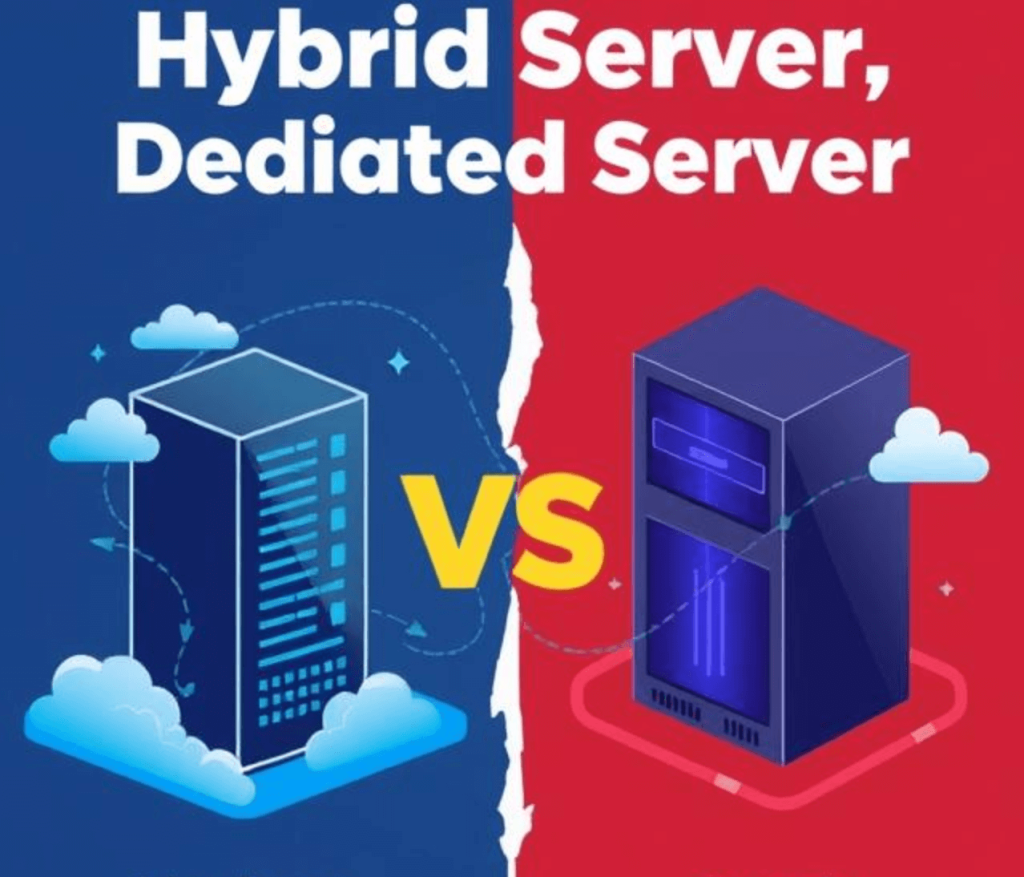
Hybrid Server vs. Dedicated Server : Which One Should You Choose? – HostNamaste.com
You don’t want to mess up your website, do you? If you go with the wrong type of hosting, you will end up digging the grave for your digital asset. I know it’s the last thing you want to see on the earth. When you set out for a small research, the diverse types of hosting will astonish you.
Shared hosting, cloud hosting, VPS hosting, hybrid hosting, and dedicated hosting will await at your fingertips. In case you are a beginner digital marketer or have no information about hosting at all, uncertainty engulfs you. Here, you are going to find out the major differences between the last two.
Hybrid Server vs. Dedicated Server; What’s the Difference?
The term hybrid server is relatively new in the market as compared to all the others. In the hierarchical pyramid, it finds the place above VPS but below dedicated hosting. In short, hybrid servers fill the gap between VPS and dedicated servers.
First, let’s have a look at what hybrid server is:
When you purchase a hybrid server, you actually get one of the dedicated space from a single server. Unlike the comparatively less powerful VPS server, a hybrid server doesn’t share its resources with any others.
In case you know, the shared hosting also works in the same way. However, your service provider will share all the resources with other properties present on the server. If a site exceeds the resource usage, you will have to compromise on the health of yours too. It doesn’t happen when you are on a hybrid server. As read earlier, each web property get separate resources. And, you will not have to endure downtimes or other issues due to actions of others.
A VPS server also has around the same strategy to share resources. Still, you can’t perceive it as powerful as a hybrid server. You get almost all the features similar to a dedicated server but at low cost with high scalability options.
Why should You Choose a Hybrid Server?
- When you have high traffic and you don’t want to spend a nugget of money for dedicated hosting.
- You can use hybrid server for file hosting, content management systems, and e-commerce sites.
- Are you looking for flexibility in terms of testing and staging servers, development, continuous integration servers, and load balanced clusters? You want easy deployment and quick reboot? Well, nothing suits you better than a hybrid server.
- Without spending money as much as for a dedicated server, you get almost similar features.
- Unlike in shared hosting, the server is partitioned among a limited number of users.
- The resources are dedicated that you don’t see any adverse effects from the mishaps of other web properties on the same server.
- The rate of scalability is high for a hybrid server. When you want to upgrade a dedicated server, you will have to take it offline. It doesn’t work that way for hybrid.
- You get the complete control over all the applications installed on your server.
What is a Dedicated Server?
I know you must have heard this many times. The name says it all. You get a dedicated server with all the resources at your compete disposal. You can use it for a single property or a number of websites or applications. It is entirely up to you how the server should behave.
When you have high traffic and you can afford spending some hefty amount without sighing, you must go for a dedicated server.
Why should You Choose Dedicated Server?
- You have a number of websites to host or many applications to store data for. The traffic of those sites or applications are so high that you can’t just risk it by going for a shared hosting plan.
- You get the steering wheel of the server. Having been accessed to host digital properties as you like, you can treat the server in any way you want.
- Unlike in shared or VPS hosting, you don’t have to share resources with anyone. That results in optimum performances with not even a tinge of worry.
- There are literally no restriction. You can do whatever you want with the server. There are no capping or bandwidth limitation.
- The performance and stability touches the top bar. On the other side of the spectrum, you will have to know how to efficiently manage a dedicated server.
Conclusion
So here we are, at the end of the article! What do you think? You have read the entire article that you must have made up your mind. In case you are confused again, let me ask you a few questions.
Do you receive high traffic? Do you want complete control over the server? Are you willing to spend a high amount in exchange for stability and performance? If you have positive answers for all these questions, you are in for dedicated hosting. In case you are short on budget, you should go for hybrid hosting as it offers most of the features similar to the dedicated one.
